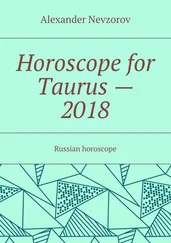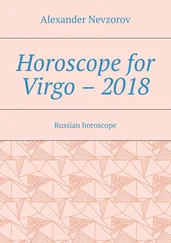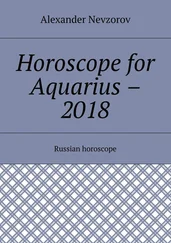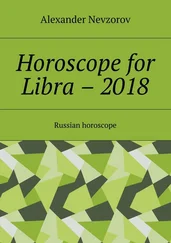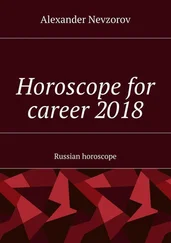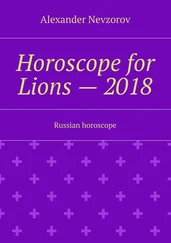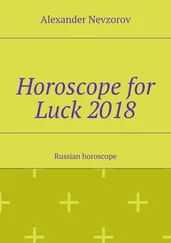Later on Hermina wrote again to Tounkin with a request that he should take action over the matter referred to in her first letter, i.e., the transfer of the funds, and to show the genuineness of the request she attachéd to this letter a second letter from Cissie of which the following is the gist:
I have received your [Hermina's] telegram of 23.1.44. Please inform Gisel's family, that she should advise Znamensky 19, that Sisi is alive and works as of old with Lucy. Lucy wanted to change the personnel, but funds ran out. Albert is sick and is not interested in business. For the work of Sisi, Gisel's family must transfer 10,000 dollars. The transfer must be made by Hermina personally through N.Y. in connection with the wishes of Mr. Helmars.
R.D.
From this it appears that Hermina had replied to Cissie by telegram, presumably through the cut-out Isaac. Cissie then asked Hermina to inform "Gisel's family," i.e., the Russians in Canada, that they should inform Znamensky 19, which is the street address in Moscow of the Red Army Intelligence Headquarters, that Cissie was alive and continuing her work for the network. She was also working as before with Selzinger, who wanted to make a change of agents but funds had run out. Rado was in hiding and was not concerned with this operation. In this message Cissie increases her demand and asks now for $10,000 to be transferred by the Centre through New York. The initials R.D. which sign the letter are of course those of Rachel Duebendorfer.
As a result of this Pavlov informed Motinov and it was decided that she should be contacted by telephone and told she must not write or ring up, but that she would be visited in two weeks' time by a man from the Centre. This visit was in fact made by Koudriavtzev. It was considered by Motinov that the money should be transferred but that it must be transferred to Washington and then handed over to Hermina in New York as it was dangerous to cross the border with such a sum. Motinov added that Hermina's letters with copies of Cissie's letters had been sent by mail and in all probability had passed through the censorship. He was particularly concerned over the second letter quoted above and the mention of Znamensky 19, which he regarded as "particularly prejudicial."
Some time later, on May 5, 1944, Koudriavtzev went to Montreal and met Hermina and allowed her to read a letter addressed to her and signed Gisel. This letter was obviously taken back by Koudriavtzev as it was one of the documents produced by Gouzenko and is the second of the five documents mentioned above.
The letter is as follows:
Dear Hermina
Thank you very much indeed for your care in our affairs and we hope that you will help us in future. It is important for us to send a letter to Geneva to Sisi. Can you send this letter with a reliable man to whom you trust? All expenses will be paid. Please let us know about your proposals in this connection as soon as possible. Please inform us about delivery of your service mail to Geneva and why are you sure that it is not censored? Please wire to Rashel or Alexander that Gisel's parents are interested about the health of Sisi and Paul and that they will help them. We ask you to forward 810,000 to that watch company according to the Sisi's instructions. Make arrangements with our representative about forwarding of this sum of money to you in USA. All your personal expenses will be paid.
With best regards
Gisel
With our knowledge of the situation, this letter is also clear. In effect the Centre thanks Hermina for her assistance and hopes this will continue in the future. They add that it is important for them to get the money to Cissie and ask for Hermina's views as to how the transfer should be made. The reference to "your service mail to Geneva" refers presumably to official mail from the I.L.O. Office in Ottawa, where Hermina was employed, to the I.L.O. Office in Geneva, which as the I.L.O. had courtesy diplomatic privilege would not have passed through the censorship. The Centre asked Hermina to send a telegram to Rachel or Alexander. This Alexander probably does not refer to me but to Isaac, and this is where I think that the Commission became somewhat confused over the two Alexanders. The reference to the interest of the Centre in the "health of Sisi and Paul" is moderately clear. The Centre was obviously interested to know whether Cissie was still at large. It seems unlikely that the Paul is Paul Boetcher with whom Cissie was living, as Boetcher was not to my knowledge in the network. It probably therefore refers to another Soviet agent of Cissie's whose real identity is unknown to me.
The next document is a report of the interview between Koudriavtzev and Hermina, at which meeting she was shown the letter from Gisel. In this interview the latter stated that her correspondence with Geneva was carried on by means of letters and telegrams. The letters were sent as part of the I.L.O. mail and not subject to scrutiny, taking about three weeks to a month. Telegrams took only a few days. There is here in Paragraph 2 of the document a reference to Aleksander A ... , who as I have already said is Isaac. Hermina went on to state that she was a good friend of Cissie's and had helped her but had previously not known anything about Cissie's work. She was completely certain that the letters had been written personally by Cissie as her handwriting and signature were well known to Hermina. At this interview Hermina stated that she would be able to send the money but would like it in a check as it was difficult to carry such large sums over the border in cash.
Koudriavtzev reported that Hermina's conduct throughout the meeting was natural. She stated during the meeting that her reception by Tounkin contrasted severely with her reception in Moscow, where she had been received warmly.
Hermina went to New York and handed over $10,000 to a watch company which had been previously known to Hermina when she was in Geneva.
The fourth document is a note by Motinov dated 31.7.44 in which it is stated that Koudriavtzev had met Hermina, who reported that she had handed over the money to the watch firm. She had subsequently sent a telegram to Isaac, who replied a few days later that he had not received the money. Koudriavtzev advised her to send another telegram to Isaac and one to the watch company. On 28.8.44 Koudriavtzev again met Hermina, who reported that she had not received confirmation from Isaac that he had received the money, but had received a telegram from the watch firm informing her that they had received a telegram from Isaac stating "thanks for the warm greetings." She therefore considered that the money had been received.
The last document is merely a letter from Hermina in which she states that she is enclosing a short memorandum on the I.L.O. and adding that she was at the disposal of the Russians for supplying any supplementary information as well as translation into Russian if required.
The above is of course a much abbreviated account of the minute investigation into the whole transaction which was undertaken by the Commission. In order not to make the reading of this Appendix too tedious I have not quoted the five documents in full but merely given the gist of them and those portions of them which refer to the connections with our network. Appendix C contains the five documents in full.
The other point of interest which emerges from the Commission's report is the reference to the use of Canadian passports. It will be remembered that when I first went to Moscow they were hoping to be able to supply me with a Canadian passport, but that as a result of the investigations by the Commission this proved impracticable. The Centre had informed me that anyway the obtaining of the passport would take time.
On page 41 of the report there is a reference to Canadian passports in a document from the dossier of Sam Carr removed by Gouzenko. This was a discussion between Colonel Milstein Milsky of the Red Army Intelligence Headquarters and Sam Carr. They met on 15.9.44 to discuss who prepared passports, i.e., what kind of people they were. Were they not old shoemakers who a few years ago fell through? That is to say that Milstein was anxious to know who was in a position to provide Canadian passports and whether this was the same organisation which had provided them in the past, which organisation had either been allowed to lapse or got broken up. Krivitsky also mentions the use of Canadian passports and an extract from his book is given on page 562 of the report in which he refers to the supplying of a Canadian passport to a Russian agent.
Читать дальше




